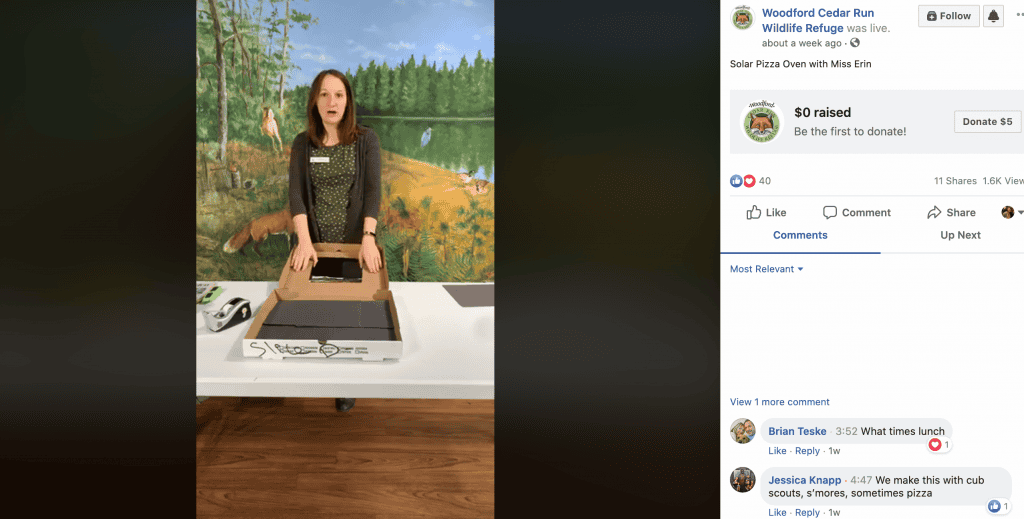

Without the usual school student trips and with a ban on passive recreation, staffers at the Woodford Cedar Run Wildlife Refuge have turned to Facebook Live during the pandemic.
An estimated 600 people tune in live, with the refuge’s videos mostly surpassing 1,000 views once the livestream has ended and is made available for viewing on Facebook.
“We’re able to stay in touch with people and we place a donate button on the classes to get some extra income for us and help keep us open,” said Erin Rounds, director of education at the wildlife refuge.
Classes began on the center’s Facebook page — Facebook.com/CedarRun — to coincide with soliciting donations and community support. Revenues have taken a downward turn since the pandemic, staffers told The Sun on March 24.
Donations have poured in, with a resounding $100,000 collected from individuals and businesses. But the refuge continues to solicit help to cover costs of operation and the animal hospital.
Staffers had videos on do-it-yourself projects livestreamed on the Facebook page, giving families options on how to kill time during distancing. Trivia features questions on animal habitats, how species survive in the wild and other topics.
“The thing we had trouble with in the beginning was the internet, because we’re in the middle of the woods and we had to extend the Wi-Fi so we can hold the sessions in many different buildings,” Rounds noted.
Following the hiccups, viewers tuned in. Children joined the refuge’s online lessons to say a virtual “hi” to permanent residents, like Phoebe the skunk.
Some, as Rounds laughingly explained, had a particular zeal for the classes, setting alarms so they wouldn’t miss one.
“A little girl named Hunter sets her phone alarms so she can see our videos every day, and we’ve received fan mail and letters about it (the classes),” she noted.
Rounds estimates that elementary-age students typically watch the sessions, much as they are the center’s target audience for the normal in-person classes. Before the pandemic, busloads of children and teachers would be greeted at the refuge by volunteers, with booklets and activity packets provided so they could interact with wildlife and learn how they live.
With schools and nonessential businesses closed, the refuge’s online offerings have spurred a reaction from the public staffers were not anticipating.
“It connects people with other people,” Rounds explained. “They have interaction with people outside of their homes and we’re helping people connect with nature and hopefully teach them things they didn’t know.”









